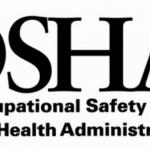Today’s Labor News & Commentary

The jobs report released today reflects a rise in unemployment claims, but at a declining pace for the seventh straight week following the record peak in late March. Weekly jobless claims totaled 2.4 million for the week ending on May 16, bringing the total since late March to 38.6 million. Though economists were hopeful that labor market job losses would plateau as states reopen, the jobs report reflects that state reopenings have not yet stemmed the rise in unemployment. The level of continuing claims instead elucidates that unemployment is persisting and the labor market remains closed for millions of Americans, even as state economies rev up and Wall Street sees steady growth.
After facing heavy backlash, OSHA rolled back its previous announcement that it would functionally leave federal safety regulations unenforced by refraining from government investigation of corona-related health and safety complaints. The agency on Tuesday set stricter enforcement policies, such as by bolstering in-person workplace inspections and by requiring employers to record infections among workers. The new guidance also continues to recognize the difficulty in establishing if a particular coronavirus case is work-related, but nonetheless obligates most non-healthcare employers to conduct a reasonable and objective analysis and to make a determination. The new guidance takes effect on Tuesday, May 26.
In other agency news, the Department of Labor adopted two significant changes to its overtime rules under the Fair Labor Standards Act (FLSA) related to retail and service-industry employers who have been hit hard in the pandemic. First, the agency broadened the scope of retail/service establishments in which commission-based employees are exempted from overtime eligibility. The older interpretive definitions under Section 7(i) of the Act had largely left out department stores, restaurants and auto repair shops. In effect, the change will make it harder for retail and service employees to qualify for overtime pay.
The second change amends Section 114 of the FLSA to allow employers to provide hazard pay or other incentive-based pay mechanisms to salaried employees with varying workweek schedules. The rule clarifies that such payments, in addition to a fixed salary, remain compatible with the fluctuating workweek method of calculating overtime pay under the Act. Traditionally, salaried employees with fluctuating workweeks are entitled to halftime premium, rather than to time and a half premium, for overtime hours worked. But the definition of “fixed salary” had left open the question of whether additional compensation is compatible with the rule. In essence, the change makes employee compensation for staggered shifts and fluctuating workweeks easier. Such flexible schedules are imperative in the modern workplace, and critical in any return-to-work plan that will need to minimize employee density at work.
Finally, McDonalds employees filed suit against the corporation for maintaining unsafe working conditions during the pandemic and, in doing so, creating a public health risk. The employees, who filed suit in an Illinois court on Tuesday, claimed the company and its franchise restaurants are forcing employees to work “in close proximity” to potentially infected servers and customers, and are failing to take important steps to contain the virus, such as by providing adequate protective equipment, hand sanitizer, or employee safety training, or by enforcing safety protocols. The lawsuit cites examples in which supervisors told workers to reuse gloves or claimed there was no need to physically distance if workers restrict interpersonal contact to “under 10 minutes.” If true, these actions and directives directly contradict CDC safety guidance. The workers are seeking class-action classification for their claims that McDonald’s actions violate state nuisance and negligence laws. The lawsuit is backed by the Service Employees International Union’s “Fight for $15 and a union” campaign, and it follows several Covid-related OSHA complaints filed by Chicago-area McDonalds workers.
